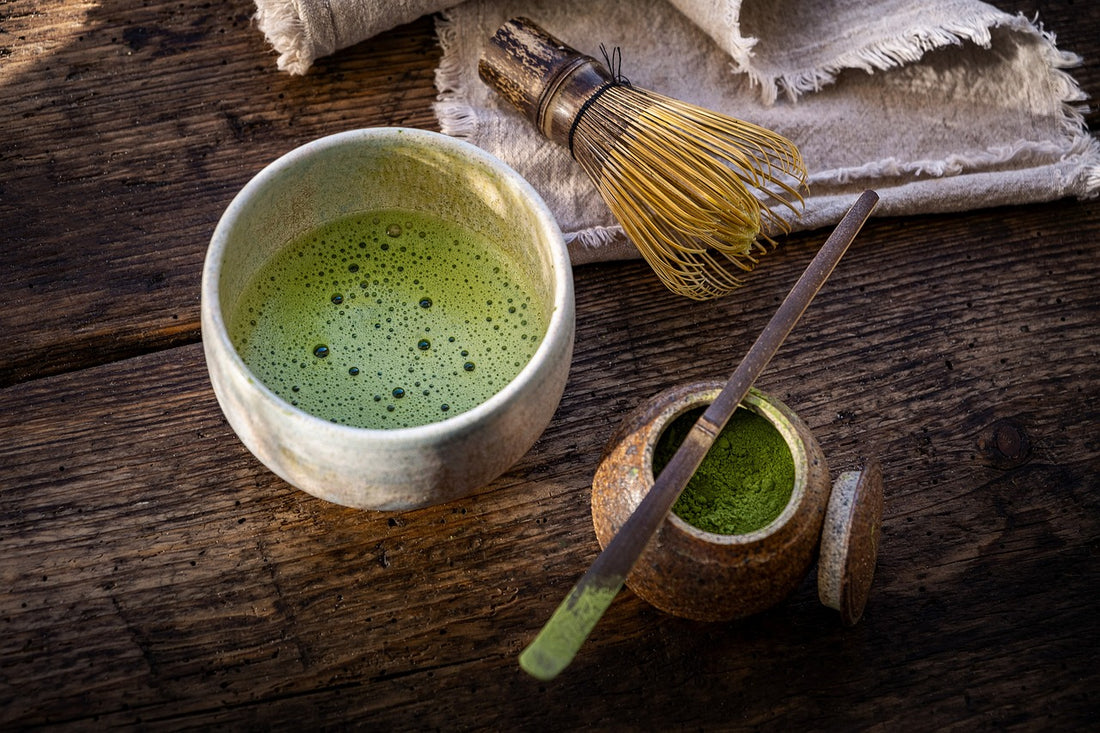Have you ever experienced the unique flavor of matcha green tea? It's a distinctive taste beloved by many tea enthusiasts. However, the popular question, Is matcha green tea decaffeinated?, is a topic of much debate. Let's delve into the world of matcha and explore whether matcha green tea is truly decaffeinated.
What is Matcha Tea Exactly?
Matcha has been a cherished beverage for centuries, maintaining its allure and distinctiveness. It is crafted from high-grade green tea leaves ground into a fine powder, which is then whisked into hot water. Unlike steeped green tea, matcha produces a frothy concoction. The preparation, presentation, and enjoyment of matcha often symbolize the revered Japanese tea ceremony. Beyond traditional tea, matcha powder finds its way into lattes, chocolates, ice cream, cakes, and biscuits.
How Much Caffeine Is In Matcha?
Studies suggest that matcha tea contains approximately 19-44 milligrams of caffeine per gram of powder. For instance, in a 100 ml serving of matcha tea (using 2 grams of powder), the caffeine content can reach around 68 milligrams. Thus, matcha is renowned for its high caffeine content, surpassing that of coffee.
Unlike other green teas, where caffeine is gradually extracted through steeping, matcha delivers all its caffeine at once since it is consumed as powdered whole leaves. Here’s how,
- Traditional green teas are typically brewed by steeping tea leaves in hot water. During this process, caffeine is gradually extracted from the leaves, resulting in a beverage with a moderate caffeine content.
- However, matcha offers a unique alternative. Instead of steeping whole leaves, matcha is consumed in powdered form, where the entire leaf is ingested.
- As a result, the caffeine in matcha is released rapidly, leading to a more immediate and pronounced effect compared to steeped green tea.
This characteristic sets matcha apart, making it a preferred choice for those seeking a quick energy boost or a concentrated dose of caffeine. However, it's essential to be mindful of the potency of matcha and consume it in moderation, especially for individuals sensitive to caffeine.
Factors That Affect Matcha Caffeine
Water Temperature
Research indicates that brewing matcha at 194 degrees Fahrenheit may extract the most antioxidants, compared to around 185 degrees Fahrenheit for other green teas.
Brewing time
Unlike traditional teas, the caffeine level in matcha is unaffected by brewing time. Once whisked into hot water, there's no need to wait for brewing.
Amount Of Matcha
The quantity of matcha powder directly influences the caffeine level; more powder equals more caffeine.
Can You Buy Decaffeinated Matcha Tea?
Despite its reputation for high caffeine content, decaffeinated matcha options exist. Some companies offer alternatives using sencha powder, marketed as low-caffeine matcha. Sencha powder boasts a significantly lower caffeine content, providing a milder alternative to traditional matcha. Moreover, some other companies use water based decaffeination process to remove further caffeine.
Decaffeinated matcha retains its nutritional value and L-theanine content, making it suitable for those concerned about caffeine intake. Accordingly, decaffeinated matcha is an ideal choice for individuals looking to enjoy the taste and health benefits of matcha without the stimulating effects of caffeine.
Is Decaffeinated Tea Better for You?
Well, if you are sensitive to caffeine, opting for decaffeinated tea ensures you can still indulge in the benefits of this natural beverage. This is particularly important for teas with high caffeine content, such as matcha It might not suit you in special situations, like pregnancy. In such situations, choosing decaffeinated tea, including decaf matcha, allows you to satisfy your tea cravings without worrying about the stimulating effects of caffeine.
Decaffeinated matcha offers numerous health benefits, including improved concentration, mental stimulation, and a supply of L-theanine amino acids. Matcha is a rich natural source of L-theanine, an amino acid known to enhance mental well-being, promoting alertness and relaxation. It is particularly beneficial for individuals sensitive to caffeine.
Final Thoughts
Matcha has captivated tea enthusiasts worldwide, particularly in China and Japan, for centuries. As powdered green tea leaves, it boasts a sweet, creamy flavor with subtle grassy notes. While its high caffeine content may give some pause, decaffeinated matcha provides a safe alternative. Sencha powder, with minimal caffeine, serves as a popular option for decaf matcha.
However, adjusting the amount of matcha powder can easily create a low-caffeine brew. Hopefully, this article has provided clarity on the question, "Is matcha green tea decaffeinated?" Embrace matcha for its unique experience—it's truly something special!
